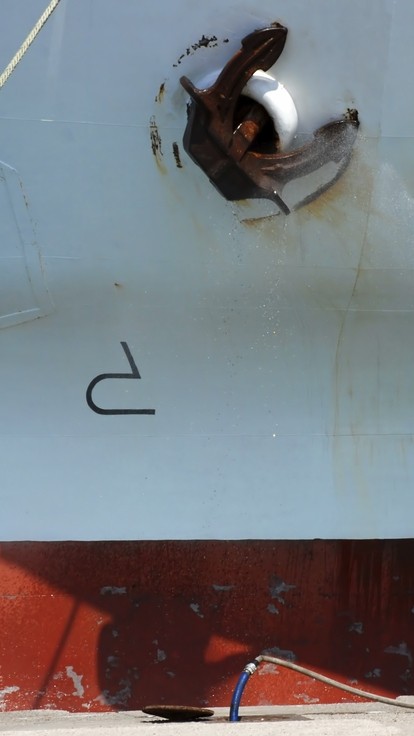Union Marine Classification Services LLC -v- (1) The Government of the Union of Comoros and (2) Bruce Harris [2017] EWHC 2364 (Comm)

Details
In this decision, the High Court has, once again, been asked to consider an application under section 68 of the Arbitration Act 1996 (see PT Transportasi Gas Indonesia -v- ConocoPhillip). Specifically, His Honour Judge Waksman QC had to consider an application for an order under section 68(2a) and/or (b) to set aside the second partial award of Mr Bruce Harris dated 10 November 2016.
Factual background
By a contract dated 15 February 2007 the claimant agreed to provide to the respondent, the Government of the Union of Comoros, registration services for sea-going vessels under the Comoros flag for a period of 25 years. In exchange for this, the claimant was entitled to retain 50% of the revenue it obtained from such services, subject to a minimum monthly payment of US$11,000 (the contract).
By a notice of termination dated 17 April 2012 the respondent purported to terminate the contract. The claimant alleged that the respondent had no legal basis for doing so and was therefore in repudiatory breach. The respondent argued that its notice of termination was valid because of a prior repudiatory breach committed by the claimant. The dispute was referred to arbitration and Mr Harris was appointed on 11 October 2013.
By a first partial award dated 22 July 2014 (the first award) Mr Harris found that the respondent was guilty of repudiatory breach, as there was no legal justification for its termination of the contract. However, the claimant’s damages claim failed. By a correction and addition to the first award dated 31 August 2014 (the correction) Mr Harris held that the respondent was entitled to an account and damages as a result of the claimant’s failure to make the minimum monthly payment under the contract after August 2011.
Following an unsuccessful challenge of the first award by the respondent, and an unsuccessful challenge of the correction by the claimant, the claimant asked the arbitrator to make a declaration, in the form of a further award, that the respondent was not entitled to cancel the contract and asked the arbitrator to assess the loss suffered by the claimant since the date of repudiation. The respondent, on the other hand, asked the arbitrator to issue an award stating that the termination of 17 April 2012 was effective and, in the alternative, that the claimant had accepted the respondent’s repudiatory breach, or in the further alternative that the contract had been terminated by the respondent’s solicitors’ letter dated 10 November 2014.
The second partial award was published on 10 November 2016 and held that the contract had been terminated following the respondent’s repudiatory breach and that:
- the claimant’s failure to pay sums due under the contract after 17 April 2012 amounted to an acceptance of the respondent’s repudiation;
- the claimant’s claim that the respondent was liable to pay damages for the loss of the whole 25 year contract was also an acceptance of repudiation; and
- in any event the further termination served by the respondent on 10 November 2014 was plainly justified as by then there had been a substantial and prolonged failure by the claimant to make any payments, which was sufficiently serious to constitute a repudiatory breach on its own.
Legal issues
The claimant challenged each of the three bases on which the arbitrator held that the contract was at an end, and in doing so presented the following five arguments.
Issue 1 – the arbitrator had no power to decide the question of termination and there had been unfairness and/or excess of powers amounting to a serious irregularity within section 68 (2a) and/or (b).
The judge held that although the issue of termination after 17 April 2012 had not been raised in the first arbitration, it is open to the parties to confer jurisdiction upon an arbitrator on an ad hoc basis and the parties had done so by an email exchange in June. Accordingly, the judge concluded the arbitrator had substantive jurisdiction to consider the termination point.
The judge also refused to accept that an observation in the first award to the effect that the claimant had not accepted the repudiatory breach ‘as such’ was a ‘finding’. The judge accepted what the arbitrator said in his second award to the effect that in making this observation the arbitrator had not made a finding. No estoppel, therefore, arose.
The judge said that for all these reasons the foundations for any irregularity were absent.
Issue 2 - there was no basis for the arbitrator to find that there had been non-payment by the claimant under the contract, and the arbitrator simply ignored plain evidence to the contrary and reversed the burden of proof in a way which was unfair and contrary to section 68 (2a) and/or (b).
The judge held that, as far as evidential questions were concerned, there would have to be something exceptional before section 68 (2a) could be engaged at all. The judge considered a number of authorities in this respect and said that it was clear that the court, in considering a section 68 challenge, must be astute to preserve the integrity of the arbitral process in the area of fact-finding so as to avoid an impermissible interference by the court with the function of the arbitrator under the guise of a section 68 challenge, and said that, in his view, cases where such interference might be justified will be extremely rare.
The judge concluded that on the materials which the arbitrator had, and in the absence of any contradiction from the claimant where all that the respondent could do was to say that there had been no payment, not only was the arbitrator entitled to conclude as he did but any complaint about his reasoning was far removed from the sort of very rare case that might fall within section 68 (2a), and it was impossible to see how the arbitrator could seriously have found otherwise. The judge went on to say that even if the arbitrator had somehow taken into account evidence he should not have done that would not have been an excess of powers but rather an erroneous exercise of his fact finding powers which he undoubtedly had.
Issue 3 - there was no basis for finding that the claim for damages for the loss of the entire contract over 25 years could amount to an acceptance and the decision here was a serious irregularity within the meaning of section 68 (2a) and/or (b).
In dismissing this argument, the judge referred to the fact that in the second award the arbitrator noted that what he had said in the correction, i.e. making a claim for damages for the unexpired duration of a fixed year contract on the basis that the contract had been lost was one of the clearest ways of accepting a repudiatory breach, had not been challenged by the claimant following the correction.
Issue 4 - the claimant had suffered substantial injustice within the meaning of section 68 (2).
Issue 5 - if there had been any power to decide the question of termination at all, that question must now be remitted and in the circumstances, to a new arbitrator in place of Mr Harris.
ThejJudge dismissed both these arguments because the suggestion of substantial injustice was hopeless in issue 4 and, since the substantive application under section 68 failed, it was unnecessary to deal with the issue 5 application which was for an order under section 24 of the Arbitration Act to remove Mr Harris as sole arbitrator.
Case comment
This case highlights the fact that it is quite rare for a section 68 (2) application on the grounds of serious irregularity, to succeed, and tells us that in order for it to succeed something exceptional must have occurred. This case also reinforces the fact that, when considering a section 68 challenge, the court must be careful not to interfere in the area of fact finding.
This article originally appeared in the October 2017 edition of shipping case digest. Other articles include:
Assuranceforeningen Skuld ( Gjensidi) & Or -v- Remalmog & Ors [2017] EWHC 2304
Ian Rollitt (trading as CD Consult) -v- Christopher Leonard Ballard [2017] EWHC 1500 (TCC)






